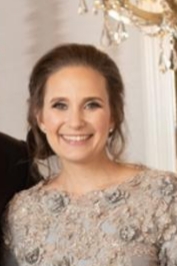Shira Wiesen
Credentials
Finances
Licensed Abroad
- 29/1 Pitum Haketoret
- Efrat, 90435
- 25 Hakeren Hakayemet, L'yisroel
- Jerusalem
Shira Wiesen
 Verified
Verified
Credentials
Psychologist
PhD
Finances
350-500 NIS
None
None
- 29/1 Pitum Haketoret
- Efrat, 90435
- 25 Hakeren Hakayemet, L'yisroel
- Jerusalem
ABOUT THE THERAPIST
My name is Shira Wiesen and I am a Psychologist who specializes in treating adolescents and adults using a Dialectical Behavioral Therapy (DBT) model. DBT is an empirically proven treatment targeting males and females who engage in self-harming, suicidal behavior and/or experience emotional instability. It has been proven effective in treating a significant range of diagnoses, including but not limited to Bipolar Disorder, Depression, Anxiety, Substance Abuse, Eating Disorders, ADHD, and Borderline features. Before making Aliyah in the summer of 2015 I ran an Adolescent DBT Intensive Outpatient Program (IOP) for 6 years in Cleveland, Ohio. In additional to running the IOP, I also ran a school based program for healthy tweens and adolescents using an adapted DBT model. Here in Israel I have utilized the intensive group and school-based work I did in the states to adapt DBT for individual, couples, and family based therapeutic formats. I run a private practice in both Jerusalem and Efrat.
QUALIFICATIONS
PhD
Fairleigh Dickinson University
2008
Degree
PhDEducation
Fairleigh Dickinson UniversityYear of Graduation
2008Years in Practice
15
REGISTERED PSYCHOLOGIST IN ISRAEL
Registration in Pinkas Hapsichologim
27-136379
LICENSED ABROAD
License Number
P.6900, OhioDISTANCE COUNSELING
Telephone Counseling, Online Therapy
PRIMARY SPECIALTIES
Anxiety / Panic
Depression
Family Issues
Parenting Issues / Training
ADDITIONAL SPECIALTIES
Attention Deficit Hyperactivity Disorder (ADHD)
Behavioral Concerns In Children
Bipolar Disorder
Borderline Personality Disorder
Mood Disorders
Self-Esteem
Self-Harm / Suicide
Stress Management
Trauma / Post Traumatic Stress Disorder PTSD
CLIENT FOCUS
Population
Adolescents
Adults
Couples
Families
Languages Spoken
English
TREATMENT APPROACH
Dialectical Behavior Therapy (DBT)Dialectical Behavior Therapy (DBT) is a type of cognitive-behavioral therapy developed by Marsha Linehan to help people learn to better manage and cope with emotions and stress. It focuses on developing skills and strategies to help regulate emotions, improve relationships and communication, and reduce self-destructive behaviors. Through DBT, people learn to identify and modify unhealthy thoughts and behaviors, while also learning to accept and validate their own feelings. DBT teaches skills to help individuals become aware of and accept and regulate their emotions, tolerate distress, and improve interpersonal relationships.
Psychodynamic TherapyPsychodynamic therapy is a form of therapy that focuses on the unconscious mind and how it affects behavior. It works to help people understand and work through past experiences and feelings that may be causing difficulties in the present. This type of therapy encourages individuals to explore their emotions, relationships, and behaviors in order to gain insight into their current difficulties. It can help individuals better understand themselves and their motivations, and gain insight into how past events have impacted their current lives. People tend to develop defense mechanisms when faced with challenges in life. Defense mechanisms may keep painful feelings, memories, and experiences in the unconscious. A few common defense mechanisms include: denial, repression, and rationalization. Psychodynamic therapists encourage people to speak freely about their emotions, desires, and fears. Being open may help uncover vulnerable feelings that have been pushed out of conscious awareness. According to psychodynamic theory, behavior is influenced by unconscious thought. Once painful feelings are brought forth and processed, the defense mechanisms are no longer needed and a person in treatment can start changing unhelpful patterns when coping with life’s challenges.
Mindfulness
SERVICES OFFERED
Individual Therapy
Family Therapy
Hadrachat Horim

 Verified
Verified

